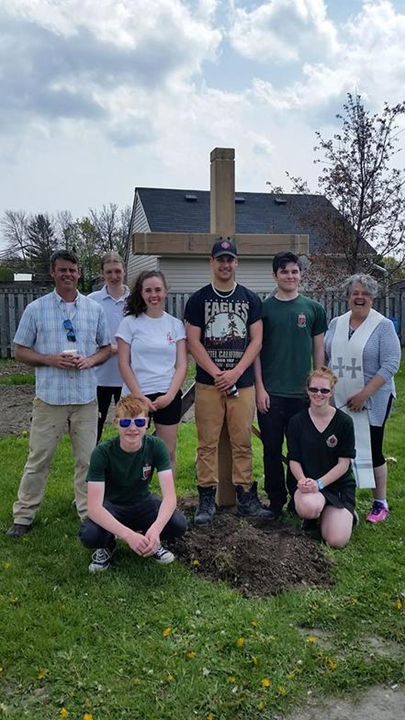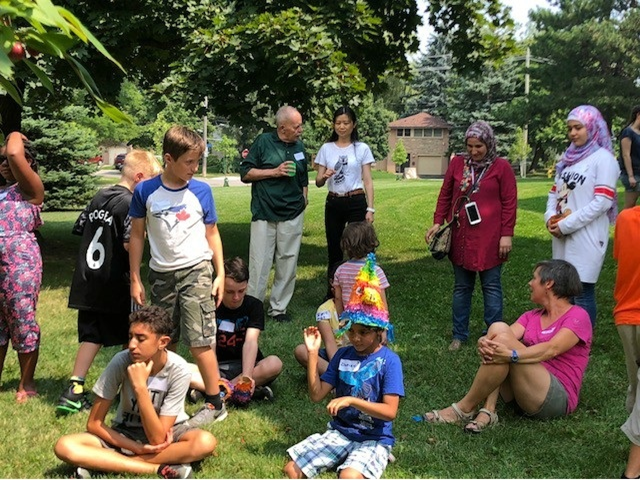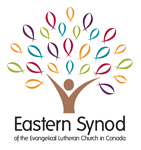From journey to pivot: motion and change in congregational life
By Henriette Thompson, October 15, 2020
We Christians are used to “journey” language. Our ancestors in the faith journeyed through the wilderness for 40 years; Jesus journeyed in the desert for 40 days. We are “people of the Way” (the road).
But these days, adjusting to rapid social change requires the ability for churches to pivot on their faith journey. COVID-19, the climate crisis, increased food insecurity, the urgency for racial justice – all are calling us to pivot from our journeys of the past to a new, outward focus.
We don’t do “pivot” (very well). We belong to churches that are institutions and well, you know what they say about institutions: they can be slow to change! To pivot, however, is to rotate, to swivel, to spin or oscillate – it’s not linear movement, it is a movement that is propelled when the end of a shaft rests and turns in a bearing.
In various ways, the pandemic has revealed the structural gaps and inequities in our communities and the pain that this causes individuals and families. So, what are some congregations doing in shifting to a “mission-outward” orientation and striving to live into the requirement of Micah 6:8 – “to do justice, love mercy and walk humbly with our God”?
Pivot to supporting homeless persons and addressing food insecurity in the community
A church visioning seminar over ten years ago was attended by Lutheran deacon Pamela Harrington and Anglican priest, the Rev. Martha Tatarnic from St. David Anglican-Lutheran Church in Orillia. This led the congregation to move from the pews and into neighbourhood conversations.

St. David was fostered in 2018 by Good Shepherd Lutheran Church when it was in dire financial straits and unable to move forward in their vision for mission. Good Shepherd was in the process of downsizing and was able to offer St. David two installments of $10,000 in assistance from returns on investments. That year marked a point when the people of St. David acutely understood their need for partners to meet a range of community needs – homelessness, food insecurity, and support for seniors.
There was also a desire to cease “doing to” and “doing for” and to seek opportunities for “doing with” members of the wider community. What happened next reflected author Frederick Buechner’s definition of vocation — “the place where our deep gladness meets the world’s deep need.”
A plan for a breakfast ministry emerged. On Sundays, a community breakfast that includes prayer, time for sharing, conversation and a meal became the place where relationships are deepened and strengthened. Soon the congregation developed relationships with and supports for young children and teens.
Furthermore, Deacon Pam’s need for counselling clinic hours and to meet needs in the community led to the establishment of Harmony Centre with support from community associations and workplaces as well as external grants.
A ministry transition in 2014 saw the arrival of Pastor Lori Pilatzke and her wife. It seems the more the congregation welcomes and embraces all members of the community, the more the people live into the congregation’s mission statement: “St. David is a congregation of people committed to service in our community, deepening our understanding of God’s calling in our lives, and offering prayer that is vital and thought-provoking.”
Says Pastor Lori: “Hospitality is not so much about the (breakfast) food as about a place for people to be themselves. Sometimes, there’s a pound of butter (an extra from the food bank) on the offering plate. It contributes to the breakfast although it doesn’t pay the hydro bill or the $130,000 we need for property repairs.”
The congregation’s weekly offering covers staffing, bills, and their allotment to the Anglican Diocese of Toronto. They rely on grants to do the mission. This includes responding to needs outside of Orillia, for example, through Canadian Lutheran World Relief (CLWR) and in Pikangikum First Nation in northwestern Ontario, a community partner of the Primate’s World Relief and Development Fund (PWRDF).
At St. David, membership growth is measured in the people having breakfast and praying together. It’s about finding a common place to meet, to tell stories to remind us all that we are beloved. “Our redevelopment will be a neighbourhood event,” says Pastor Lori.
“St. David is a triage centre for the bleeding soul of people who are so tired of existing in daily life. They need a sanctuary, and not to be seen as the ODSP (Ontario Disability Support Program) person collecting liquor bottles for cash.”
“When I presided over the funeral of a homeless person who died in a boat fire, there were fifty people in the funeral home who would never enter a regular church building. Don’t they deserve to have the good news proclaimed in their midst?”
Recreating mission to fulfill vision
A similar vision for mission resides in the members of St. Philip’s Lutheran Church in Etobicoke, Ontario.
Pastor Tuula Van Gaasbeek is emphatic that conversion growth, not transfer growth — in church parlance — is its vocation. An emphasis on conversion growth generated fresh insights about the kingdom of God — “the church does not take God into the community. Rather, God is already there. We need to go out and participate in God’s kingdom.”

Eight years ago, when Pastor Tuula arrived, she says members didn’t really know who lived in their neighbourhood. Slowly the dwindling congregation began a process of discernment through asset mapping – discovering strengths and resources to help uncover solutions — and a discovery of themes that were reduced to three for congregational decision.
In the process, St. Philip’s encountered their neighbours through conversation with elected officials, community groups, local police, and a Somali women’s kitchen group. It was “time-consuming, messy, and difficult,” says Pastor Tuula.
Various initiatives were dreamed up, some discarded as unworkable – a “care team”; a “dinner church”; a good food market, to name a few. “You have to constantly recreate your mission,” says the pastor. “It is essential to have visionary leaders in the congregation who will have the courage to take on things that may fail.”
St. Philip’s has been successful in locating grant funding to hire at varying times a community outreach developer and a summer student, as well as support of learning and engagement with community members, and food consulting for the Good Food Market. This year, the United Way grant supported ”Neighbourhood Table”, a collaboration of St. Philip’s, the Arab Community Centre of Toronto (ACCT), Polycultural Immigrant and Community Services, and FoodShare Toronto.
COVID-19 required the Neighbourhood Table to pivot to “Neighbourhood Table at Home.” “We have moved, like everything else, to ZOOM,” says project coordinator Eunice Hogeveen.
Project partners are very active on social media and support the efforts to build online community around this initiative. In-person workshops to teach children skills in the kitchen have also shifted online.
“We are lucky to have partnership with St. Philip’s. It is amazing what they are doing,” Salma Abubaker, youth settlement worker with the Arab Community Centre of Toronto, in a recent CTV interview. “We have a lot of appreciation and comments from our clients saying thank you, thank you…”
Stories such as those about St. David and St. Philip’s churches inspire us to “ask for more than we can imagine” and to make room for God’s Spirit to move.
Perhaps COVID-19 and all its attendant stresses will cause some congregations to invest in meeting community needs in new ways. Perhaps new partnerships – with adoptive or fostering churches or with community agencies – will release congregations into unforeseen and re-energizing ways of being Jesus’ hands and feet in the world.
